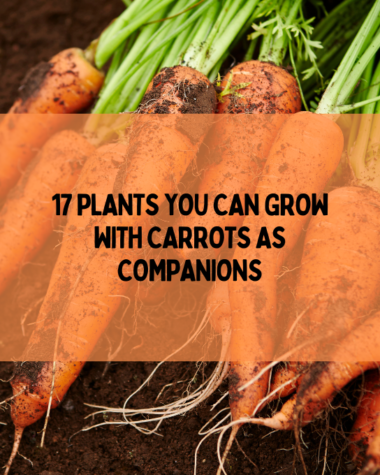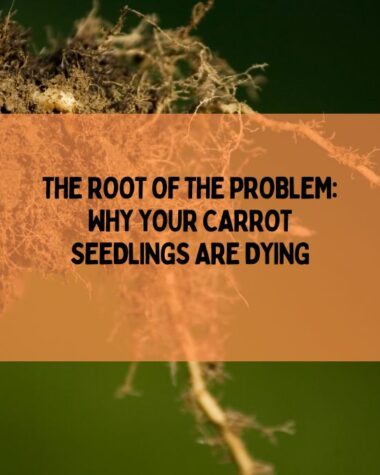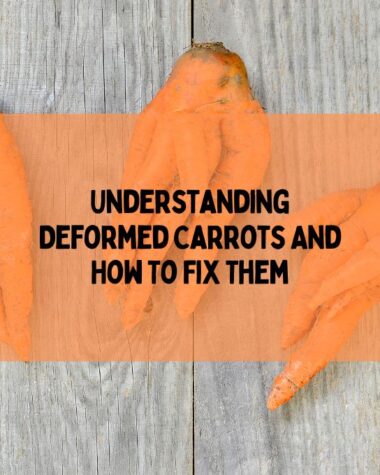Carrot Growing Problems: Gardeners face common problems for several reasons, such as Soil Related Issues, Seed Related Issues, Watering, Nutrient Related Issues, Pests and Disease Related Issues, and Common Diseases.
Growing carrots is a popular hobby for many gardeners, but it can be frustrating when your carrots fail to develop correctly. Carrots are a nutritious and versatile vegetable, and troubleshooting problems during the growing process is essential to ensure a healthy and abundant harvest.
In this article, I will explain common issues hindering carrot growth and offer solutions for each problem.
Soil Related Issues
Carrots require well-draining soil with a pH range of 6.0 to 6.8 for optimal growth. Soil-related issues can be a significant factor in your carrots won’t develop.
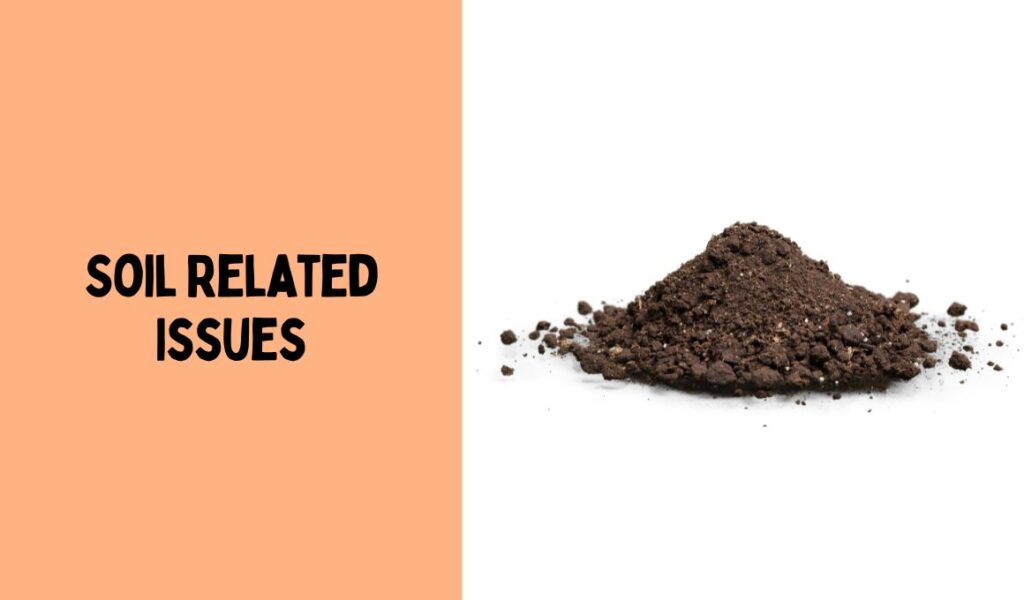
Soil pH
The ideal soil pH range for carrot growth is between 6.0 and 6.8. A pH outside of this range can cause stunted growth or even death of the plants. You can test your soil’s pH with a testing kit at most gardening stores. Add lime to raise the pH if your soil pH is too acidic. You can add sulfur to lower the pH if it’s too alkaline.
Soil structure
Well-draining soil is essential for carrot growth. Poorly-draining soil can cause the carrots to develop rot and become stunted. If your soil has poor structure, you can amend it with organic matter, such as compost, to improve drainage.
Related Read
- How to Find, Prevent, and Treat Zucchini Plant Problems?
- What Causes Holes In Cucumbers And How to Prevent It?
- 5 Most Common Tomato Stem Problems: And How to Fix Them
- 18 Common Aubergine Growing Problems and Their Solutions
Seed Related Issues
Seed quality and planting depth, and spacing can also impact carrot growth.

Seed quality
Choosing high-quality seeds is essential for healthy carrot growth. Look for plump seeds, uniform in size, and have a high germination rate.
Avoid seeds that are discolored, damaged, or past their expiration date. Proper storage of seeds is also essential—store seeds in a cool, dry place, such as a refrigerator.
Planting depth and spacing
The optimal planting depth for carrot seeds is 1/4 inch to 1/2 inch deep. Plant seeds too deep, and they may not germinate. Plant them too shallow, and they may dry out. Carrots should be about 3 inches apart to allow enough room to develop. Crowded carrots will be small and misshapen.
Watering and Nutrient Related Issues
Proper watering and nutrient management are also essential for healthy carrot growth.
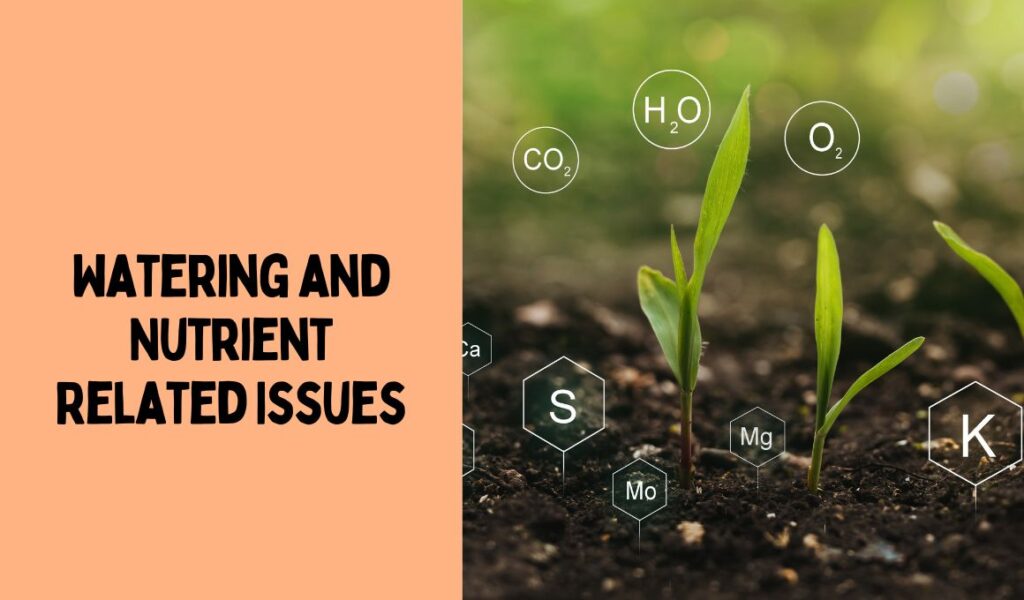
Watering
Over or under-watering can cause issues with carrot growth. Carrots need consistent moisture, but they prefer to avoid being waterlogged. Water deeply once a week, but only if significant rainfall has yet to occur.
If the soil feels moist, do not water. Too much water can cause the roots to rot, and too little water can cause the carrots to become stunted.
Nutrient deficiencies
Carrots need a balanced supply of nutrients for healthy growth. Common nutrient deficiencies include nitrogen, phosphorus, and potassium.
Symptoms of nutrient deficiencies include yellowing leaves, stunted growth, and poor root development. Adding compost or a balanced fertilizer can help correct nutrient deficiencies.
Also, Read
- Preventing The Spread Of Root-Knot Nematodes To Save Carrot Crops
- The Root Of The Problem: Why Your Carrot Seedlings Are Dying
- Southern Blight: Effective Ways To Control Carrot Disease
Pest and Disease Related Issues
Carrot plants can also fall victim to pests and diseases that impede their growth and development. Identifying these problems early and implementing solutions promptly can save your crop from damage or complete loss.
Common Pests
Identification and Prevention of Common Carrot Pests
Carrot fly is a common pest that can cause significant damage to carrot plants. It lays eggs on the soil surface near carrot plants, and when the eggs hatch, the larvae burrow into the soil and feed on the carrot’s roots. This can cause the plants to wilt and die.
To prevent carrot fly infestations, use fine-meshed insect netting to cover the plants, starting at 2-3 inches high. Ensure the netting is secured to the ground to prevent the flies from getting underneath. Alternatively, you can try interplanting with onions, which release a scent that repels carrot flies.
Aphids are another common pest that can attack carrot plants. They suck sap from the plants, causing yellowing and distortion of leaves. Aphids can also transmit viral diseases to plants.
To prevent aphid infestations, use insecticidal soap or neem oil. These are effective and safe methods for controlling aphids without harming beneficial insects such as ladybugs and lacewings.
Natural Remedies for Pest Control
Companion planting can be an effective way to control pests without using chemical pesticides. Planting herbs such as thyme, rosemary, and basil around the carrot plants can deter pests such as carrot flies and aphids. These herbs also attract beneficial insects, such as ladybugs and parasitic wasps, which feed on harmful insects.
You can also make a homemade insecticidal spray using ingredients such as garlic, hot peppers, and dish soap. This spray can be applied directly to the plants to repel pests.
When to Use Chemical Pest Control Methods
Chemical pesticides should be used as a last resort, as they can harm beneficial insects and cause environmental damage. If natural remedies are ineffective, consider using a targeted pesticide specific to the pest you are trying to control.
Also, Read
- The Ultimate Guide To Recognizing And Managing Cercospora Leaf Blight In Carrots
- Can You Grow Carrots? / What Are Some Common Carrot Varieties?
- Growing Carrots In The South During The Summer Heat: A Complete Guide
Common Diseases

Identification and Prevention of Common Carrot Diseases
Damping-off is a common fungal disease that can affect young carrot plants. It causes the plants to wilt and die, often caused by overwatering or poor drainage.
To prevent damping-off, make sure the soil is well-draining and avoid overwatering. You can also use a sterile seed-starting mix to prevent the disease from spreading.
Carrot rust fly is another common disease that can cause damage to carrot plants. It is caused by a fungus that forms orange pustules on the leaves and stems of the plants. This can weaken the plants and make them more susceptible to other diseases.
To prevent carrot rust flies, rotate your crops and avoid planting carrots in the same spot for over two years. You can also use a fungicide to treat infected plants.
Natural Remedies for Disease Control
You can use natural remedies such as chamomile tea and baking soda to prevent and treat fungal diseases, such as damping-off and carrot rust fly. Chamomile tea can be a foliar spray to prevent fungal diseases, while baking soda can treat infected plants.
When to Use Chemical Disease Control Methods
Chemical fungicides should only be used when natural remedies are not effective. When using chemical fungicides, follow the instructions carefully and use the recommended protective gear to avoid exposure.
Conclusion
Growing carrots can be an enriching experience, but it requires careful attention to detail and a willingness to troubleshoot problems that may arise. The tips and techniques outlined in this article can increase your chances of growing healthy and delicious carrots in your garden.
Remember to start by assessing your soil and ensuring it is well-draining and has the proper pH level. Choose high-quality seeds and plant them at the appropriate depth and spacing. Water your plants carefully and observe signs of over/under watering. Finally, be on the lookout for pests and diseases, and take action quickly if you notice any issues.
By implementing these troubleshooting techniques, you can overcome many common problems that impede carrot growth and ensure a bountiful harvest. Feel free to experiment with different methods and techniques, and remember that gardening is a learning process.
With time and patience, you can become a skilled carrot grower and enjoy the delicious rewards of your efforts.
Happy Gardening!




